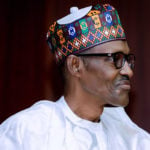This was the view of some scholars at the opening of a three-day conference held in Ibadan, Oyo State with the theme: “Muslim Unity and Quest for National Integration.”
The conference was organised by Islamic Welfare Foundation, a non-governmental organisations, in conjunction with the Department of Arabic and Islamic Studies, University of Ibadan.
In a keynote address, Director, Institute for Peace and Strategic Studies University of Ibadan, Professor Isaac Albert, said the core problem faced by Nigeria and Nigerians was lack of consensus on how to move the country forward.
In the address, titled “Religion and Consensus Building in Nigeria,” Albert noted that religious leaders could help bring unity back to the country.
“The time has come for religious leaders to speak with one voice and stand up and help build the nation as religious leaders are said to have the convening power of the people,” the don said.
He said in building consensus on the way forward, there must be inclusion of representatives of all relevant and significantly different interests in peace processes.
“In building consensus, common mistakes such as failing to define issues, not establishing rules, bargaining with dissenters and pushing one’s own agenda must be averted,” Professor Albert said.
Also speaking, a professor of Islamic Studies at the Obafemi Awolowo University, Ile -Ife, Muibi Opeloye, said politicisation of ethnicity and religion were key elements impeding unity and national integration in Nigeria.
He, however, said if properly constituted and rightly deployed, both could promote national citizenship.
“Politicisation of ethnicity and religion can be traced to the period of colonial administration. During the struggle for independence, the nationalists were disunited on many issues of national interests on the basis of religion and ethnicity,” Professor Opeloye said.
The Vice Chancellor of the University of Ibadan, Professor Idowu Olayinka, said religious leaders had solution to the challenges facing the country.
Olayinka, who was represented by the Dean, Department of Philosophy, Professor Francis Ofor, said the university also recognised the importance of religious peace and tolerance.
While noting that Muslims and adherents of other faiths have their different ideas, the vice chancellor said there are some ideas that are common and are supposed to be brought together.





